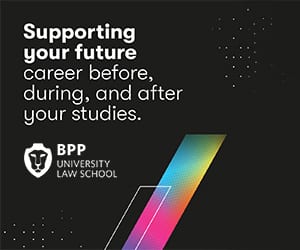
Apr 01, 2025
Written By Jack J Collins
What law firms expect from non-law students
Apr 01, 2025
Written By Jack J Collins
There are a variety of routes into law, and many prominent figures within the industry actually started off doing a different degree before converting after graduation. We discussed the details of converting to law with the Early Talent team at Taylor Wessing, to get thier unique insight into what the firm are looking for in non-law candidates and how you can get ahead of the chasing pack.
How do non-law students go about applying to Taylor Wessing?
There are no differences in the way we recruit non-law candidates as opposed to candidates with a law degree. The application process is exactly the same; and there are no additional tests or tasks for students from a non-law background. We treat all candidates equally as we appreciate that studying law at university is quite different from practical application within the workplace.
Are there any specific events for non-law applicants?
Our overall approach is inclusive, so we do not separate events and activities for non-lawyers and lawyers. Everyone is welcome to register to attend open days, skill sessions and webinars, which are available throughout the year. For further information, check out the Taylor Wessing events calendar.
In your experience, what do non-law students bring to the table that law students may not?
The reason we look for diversity is because it reflects our clients, who belong to a broad spectrum of industries. Different degree subjects, as well as each student’s unique experiences, are important in helping us provide the best, bespoke service for every client that we work with.
Having candidates from a diverse range of backgrounds has essential commercial benefits and allows us to remain competitive within the industry.
What should non-law students be doing throughout their studies to prepare themselves for a conversion to law?
We want students to show they are focused and have a drive to work as a trainee at a global law firm with a diverse client base. They should also understand and be able to demonstrate the motivations behind their decision to become a lawyer.
Thus, joining societies, attending law fairs or events, and researching widely is beneficial in that it shows you understand the career path and gives you content to demonstrate your personal motivations during the selection process. It is also worthwhile attending firm-specific events in order that you can find out what kind of firm would be right for you in a personal sense.
Is an interest in news and current affairs something you look for?
At Taylor Wessing, we look for students to demonstrate commercial awareness in order to showcase their knowledge of the legal sector. Developing overall commercial awareness and critical thinking at university are important as we are not just testing legal understanding, but your ability to discuss wider political, social and economic issues.
Making sure you are able to apply your knowledge of current affairs to case studies is an important skill and it is therefore key to focus on developing knowledge by absorbing information from podcasts, newspapers, etc.
Are there any specific traits candidates should be looking to demonstrate?
We especially like to see students who are flexible, as the breadth of our client base and nature of our work means that you will have responsibility and exposure early on in your career. Therefore, it is important to show throughout your studies that you are proactive in seeking out opportunities and embracing new experiences.
How can non-law students set themselves apart?
Taylor Wessing looks to hire students from a diverse range of backgrounds, allowing us to benefit from different perspectives and skills. This helps us to provide the best service for the clients that we work with. People and relationships are our business.
We take time to get to know each other, communicate openly and work collaboratively as one firm. We build successful relationships that span international boundaries and legal disciplines.
So it’s about being able to work as part of an ever-evolving team?
Yes, but as well as being a team player who can build relationships with our clients, we look for a candidate to demonstrate their skill-set - the aforementioned flexibility, but also organisational and problem solving skills. We also like to hire students who have an enthusiastic interest in the business world and are able to use this to help achieve the best results for our clients.
Taylor Wessing is always looking to recruit the most talented and forward thinking individuals from non-law backgrounds, and will continue to recruit from more and more diverse areas over the coming years to help create a stronger firm.
What percentage of your trainee intake are from non-law disciplines?
Each year it can change but its normally around 50% of our trainees from those who didn’t study law at university.
What support does Taylor Wessing offer to non-law students who are accepted onto their schemes?
We appreciate it can be a bit of a jump from your university studies to legal ones, so you will be paired with a trainee buddy whilst studying for the PGDL/ SQE, prior to starting with the firm. You will also have the opportunity to have a mentor figure for further personal development and guidance, as well as an overall supervisor.
The Trainee Solicitor Council is something else the firm offers, and is a great forum to discuss ideas and raise any issues you have, to the graduate recruitment partners. There are numerous networks within the firm to share knowledge and you will also be assigned a learning and development contact to ensure your training needs are met.
Law Conversion Course


